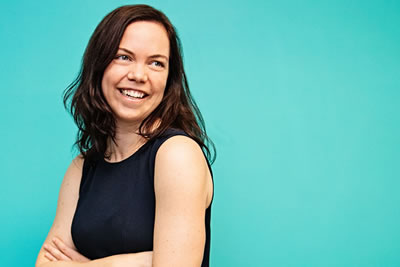Getting Research Into Practice: Communicating So That Policy-Makers Listen
By Victoria McCreanor, AusHSI and Capital Markets CRC PhD Candidate, and AusHSI Research Associate
This summer I was fortunate enough to be selected to undertake a six-week summer research project with the Deeble Institute – the Australian Healthcare and Hospital Association’s research arm in Canberra. The purpose of the Deeble Institute summer scholarships is to enable students to experience working in a peak national health body and develop the skills to write about academic research in a way that is relevant to policy-makers. The Deeble Institute also helps students make connections with policy-makers relevant to their area of research.
 My PhD project is about finding high-value care for coronary artery disease. The necessary flipside of investing in high-value care is disinvesting in low-value alternatives. Disinvestment in low-value health care is a topical issue because of the consequences that flow when low-value care continues to be carried out; it affects patient outcomes and wastes healthcare resources. I applied for the Deeble Institute scholarship as an opportunity to investigate some of the barriers to disinvestment that we face in Australia and to produce an Issues Brief on the topic.
My PhD project is about finding high-value care for coronary artery disease. The necessary flipside of investing in high-value care is disinvesting in low-value alternatives. Disinvestment in low-value health care is a topical issue because of the consequences that flow when low-value care continues to be carried out; it affects patient outcomes and wastes healthcare resources. I applied for the Deeble Institute scholarship as an opportunity to investigate some of the barriers to disinvestment that we face in Australia and to produce an Issues Brief on the topic.
Knowledge translation and health policy
During the program in Canberra I was introduced to a number of health policy advisors – from all sides of politics – who shared some of the complexities of making changes to health policy in Australia. The experience was very positive, with everyone keen to read the final Issues Brief. The overriding message from policy-makers and the Deeble Institute, as a knowledge translation organisation, was that information intended for policy-makers must be concise, evidence-based and give clear direction… and all in language that a non-expert can easily understand. Simple, right?
It sounds simple, but this feedback shows that in reality many academics fail to communicate the importance of their research outcomes in a way that is useful to policy-makers. I can now also say, from experience, that translating our research is much more difficult than it sounds. However, if we as researchers want changes to be made based on our findings, these communication skills are essential.
The scholarship experience
Aside from working on my Issues Brief and meeting with health policy-makers, I saw the way Canberra reacts to a political scandal, a change of minister, and its obsession with politics in general. If you feel worn down by hourly updates on US politics, this is not the place for you. On the other hand, it’s exciting being in the place where everything happens. There is a real buzz in Canberra during weeks when Parliament is sitting. I also saw Pauline Hanson and a lump of coal.
Outside of work hours, everyone I met was out to make sure that I didn’t leave thinking Canberra was boring. I found myself in a city full of tour guides. Believe it or not, Canberra has a lot of great bars and restaurants. Canberrans are also spoilt for choice when it comes to national monuments, art galleries and museums. It also caters for outdoorsy types, with bike tracks running around the famous Lake Burley Griffin, where you can watch early-morning rowers as you ride by.
It didn’t take long for me to understand why Canberra had earned the nickname ‘bush capital’: cockatoos woke me up every morning, I saw kangaroos on my way to the office and the view from my window was like something from a Banjo Paterson poem. Even though I’ve lived here in Australia most of my life, Canberra really looks like Australia. It was a great start to the year and an experience that I would recommend.
To apply for next year, find out more here.






